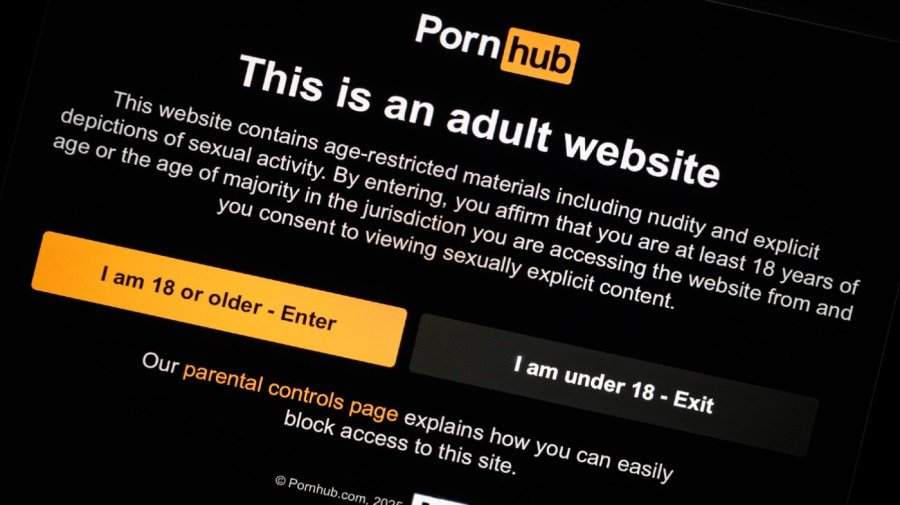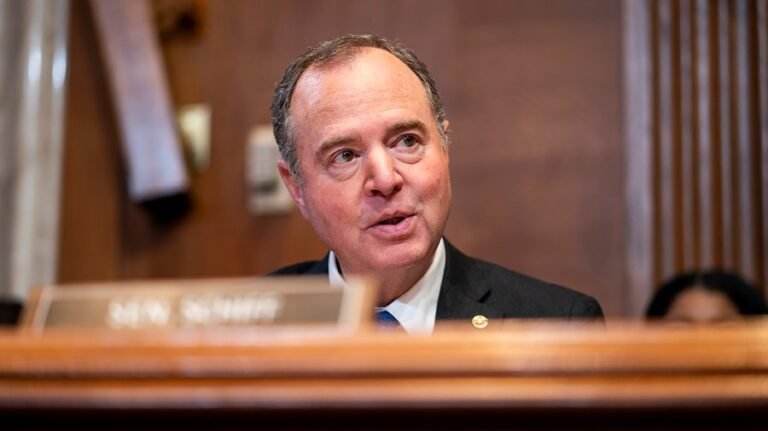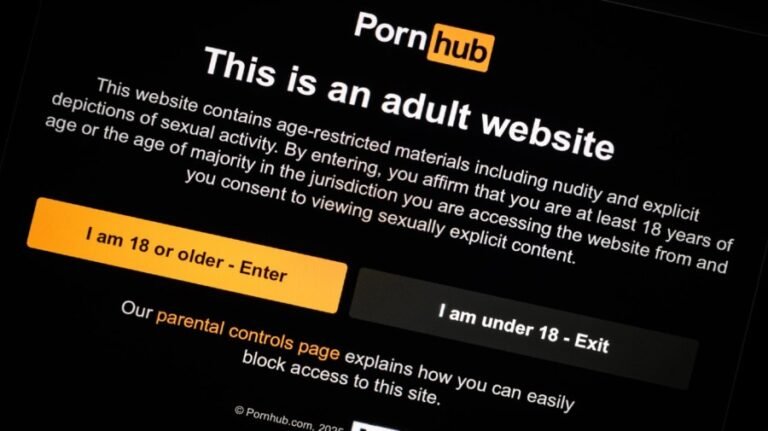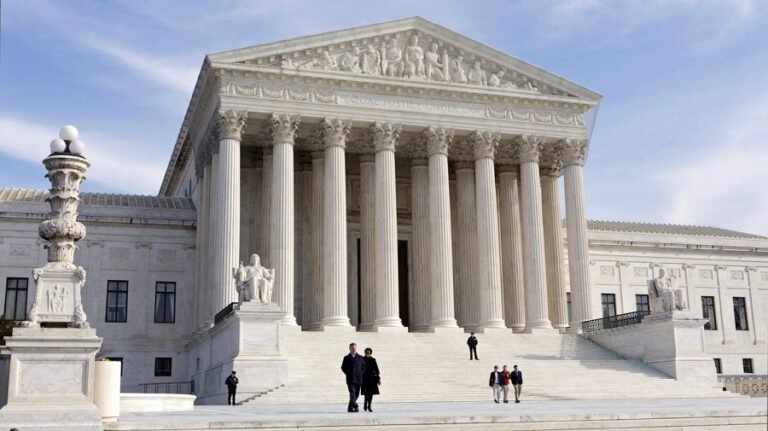
The Supreme Court ruled Friday that Texas’s age-verification law for porn websites is constitutional and does not violate the First Amendment.
In a 6-3 decision along ideological lines authored by Justice Clarence Thomas, the Supreme Court upheld a Texas law requiring porn sites to verify that users are at least 18 years old.
“The power to require age verification is within a State’s authority to prevent children from accessing sexually explicit content,” Thomas wrote in the opinion.
“The First Amendment leaves undisturbed States’ traditional power to prevent minors from accessing speech that is obscene from their perspective,” he added. “That power includes the power to require proof of age before an individual can access such speech.”
Friday’s decision could pave the way for other states’ age verification laws that restrict access to online porn. Nearly 25 U.S. states have passed similar measures related to adult content as technology increases minors’ access.
The Texas law, passed in 2023, also required sites to include a warning that pornography is “potentially biologically addictive” and “proven to harm human brain development, desensitizes brain reward circuits, increases conditioned responses, and weakens brain function.”
Free Speech Coalition, a trade association representing the adult entertainment industry, sued Texas Attorney General Ken Paxton (R). It argued the law violates the First Amendment by creating barriers for adults to access the websites.
During oral arguments in January, the majority of justices suggested the concept of an age-verification requirement could survive First Amendment scrutiny, while still signaling they may send the case back to the lower court to consider the Texas law under a higher standard of review.
However, the court ultimately determined the law only has to clear a lower standard of review, known as intermediate scrutiny, which it “readily survives,” Thomas wrote
“The statute advances the State’s important interest in shielding children from sexually explicit content,” he continued. “And, it is appropriately tailored because it permits users to verify their ages through the established methods of providing government-issued identification and sharing transactional data.”
Thomas acknowledged the complex nature of sexual content, stating “history, tradition, and precedent establish that sexual content that is obscene to minors but not to adults is protected in part and unprotected in part.”
The case brought the explosion in online porn to the country’s highest court, where justices took into account the technological shifts that have made adult content more accessible than ever.
Thomas underscored the rapidly changing nature of technology in finding that several previous Supreme Court decisions that applied a higher standard of scrutiny to similar issues were not relevant.
He noted that two earlier cases were decided “when the internet was ‘still more of a prototype than a finished product.’”
In dissent, the court’s three Democratic-appointed justices argued preventing children from accessing content deemed obscene for minors may cause states to take measures impeding adults’ ability to view it.
“What if Texas could do better—what if Texas could achieve its interest without so interfering with adults’ constitutionally protected rights in viewing the speech [the Texas law] covers?” wrote Justice Elena Kagan, joined by Justices Sonia Sotomayor and Ketanji Brown Jackson.
Kagan said states should not be allowed to restrict adults’ access to protected speech if it is not necessary. She criticized the majority opinion as “confused” and “at war with itself.”
“The majority is not shy about why it has adopted these special-for-the-occasion, difficult-to-decipher rules,” Kagan wrote. “It thinks they are needed to get to what it considers the right result: giving Texas permission to enforce its statute.”
“But Texas should not receive that permission if it can achieve its goal as to minors while interfering less with the speech choices of adults,” she continued, adding, “For that reason, the majority’s analysis is as unnecessary as it is unfaithful to the law.”
The decision could also have ripple effects for the broader debate over age verification ramping up in Washington.
Several leading technology companies are clashing over who or what should be responsible for verifying users’ ages for downloads of all applications.
App developers such as Meta, X and Snap argue the onus is on app stores because they already have age data, but Apple and Google, which operate two of the most popular app marketplaces, say the data would still be shared with developers and risk users’ privacy.
Various tech advocacy or industry groups have expressed concern with either approach due to its risks to privacy or free speech.
Some told The Hill earlier this month they would prefer a mixed approach, with both the app developers and stores playing a role in age verification. Others contend the responsibility of content moderation falls to parents or guardians of children and teens.
Updated at 12:06 a.m. EDT






